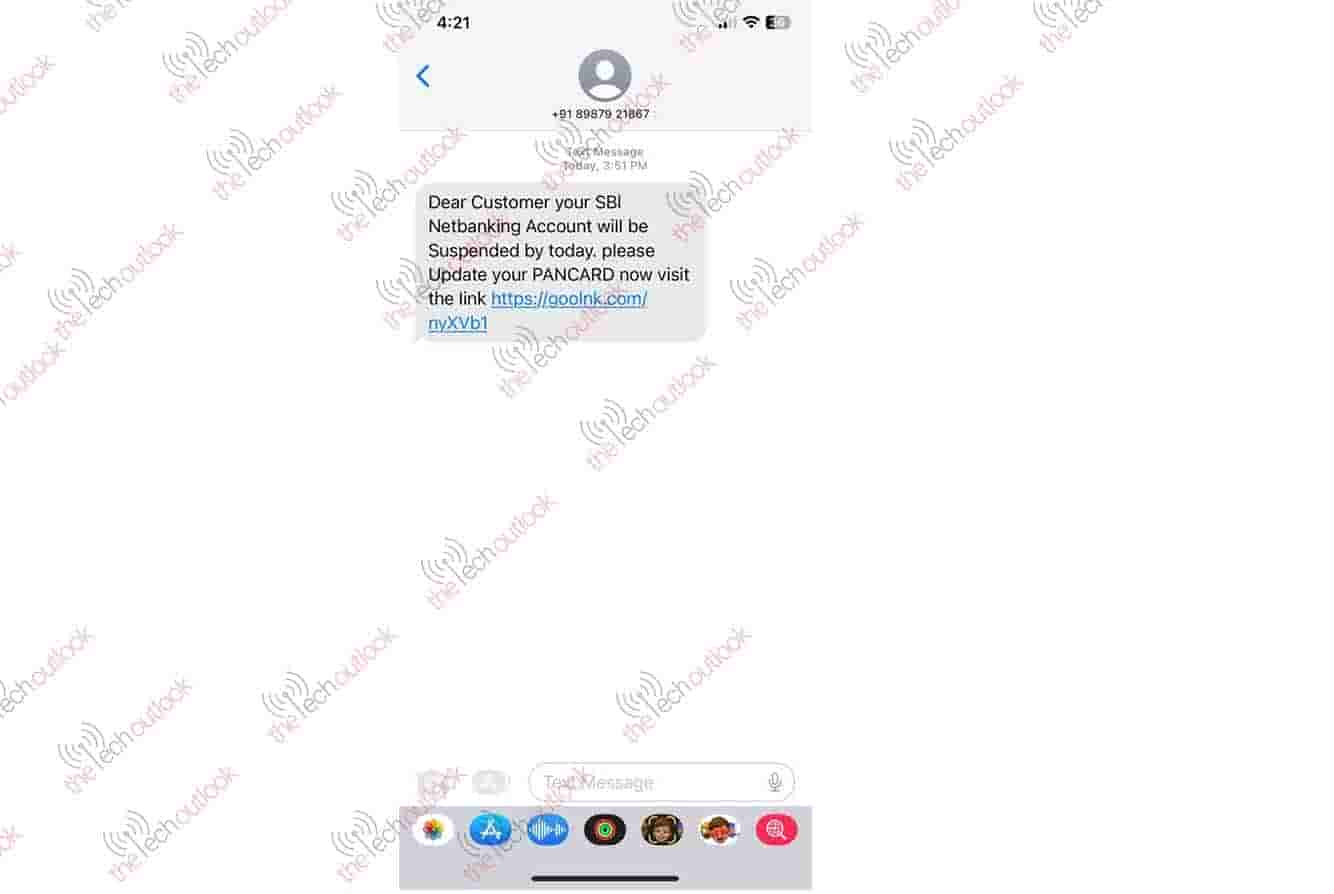Did you receive a message recently that your netbanking has been disabled? IT MIGHT BE A SCAM

Today, one of our team members received a suspicious message informing him that his SBI net banking had been disabled. The first thing that came to his mind was that he doesn’t even bank with SBI, so how could he have received such a message? This is a clear indication that the message is a completely bogus scam.
We were able to identify it because, as per the new TRAI norms, one must first register with the DLT platform to send an SMS with the name headers. Scammers are now finding it difficult to send messages from portals because TRAI is more vigilant. However, scammers are resorting to using phone numbers to send messages to people. One of our team members received such a message, and you can find a screenshot of it.

As you can see, banks typically use sender IDs like AXISBNK or SBIBANK in their messages. However, in this case, the message was sent from a phone number: +91 8987921867.
The message in the SMS reads “Dear customer your SBI net banking will be suspended by today. Please update your pan card now visit the link”
If you have received a message claiming that your net banking has been disabled, it is important to be cautious as it could be a scam. Here are some steps you can take to make sure you stay safe:
- Do not click on any links or provide any personal information. Scammers often use phishing techniques to trick you into revealing personal information like your login credentials, credit card numbers, or other sensitive information.
- Verify the message by contacting your bank directly. Use a phone number or email address that you know to be legitimate to contact your bank and ask them if they have sent you any such message.
- Keep an eye on your bank account activity. Monitor your account for any unauthorized transactions or suspicious activity. If you notice anything out of the ordinary, contact your bank immediately.
- Report the message to the relevant authorities. If you suspect that the message you received is a scam, report it to your bank and to your country’s fraud prevention agency.
Remember to always be cautious when receiving messages that ask you to provide personal information or click on links. Scammers often use scare tactics or urgent language to trick you into taking action quickly, so take a moment to verify the message before responding.


